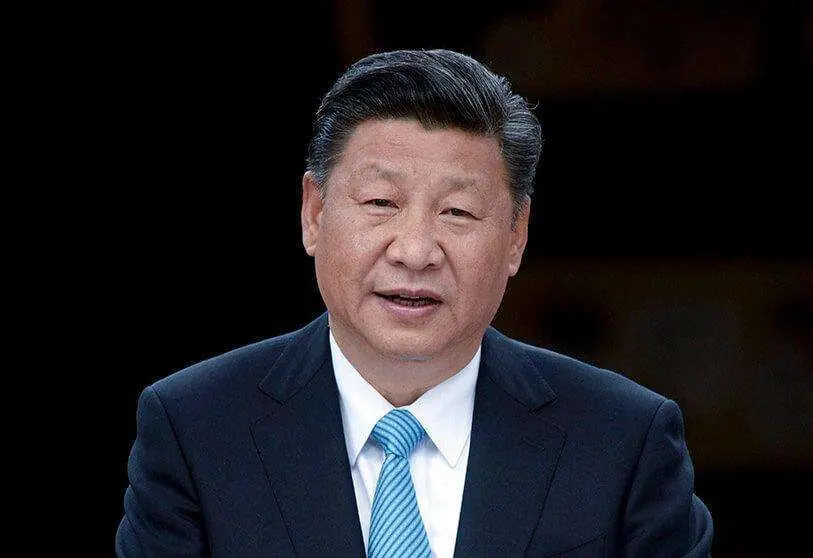The Chinese Communist Party

July 2 marked the centenary of the founding of the Chinese Communist Party (CCP), a gigantic meritocracy made up of ninety million comrades who control with an iron fist the government, the armed forces, the security apparatus, politics, culture, the economy and also 1.4 billion Chinese, which is an understatement to say the least. Its power is immense because the Party is both the driving force and the brake on everything China does or tries to do. It is both a driving force for economic development and social progress, its main source of legitimacy, and a brake because its own rigid, pyramidal structure and lack of freedom hinder the possibilities for innovation. Because without debate there is no progress.
It is said that President Xi Jinping wants to emulate Mao and that is why he has also wanted to embody his "thinking" in the Constitution, just as he has abolished term limits in order to remain in power forever, as Mao also did. And that may be true, although in my opinion what really worries him is not so much being Mao as not being Gorbachev, who this Christmas will be precisely thirty years since he ended the USSR. Xi wants to ensure the survival of the Communist Revolution and for this he relies on the Party, which is an omnipresent organisation that guarantees that nothing escapes government control. The Party is all-seeing, all-hearing, all-knowing and, as Xi Jinping himself has said, "it is the east, the west, the north and the south".
In recent days the Chinese Communist Party has met to make a thorough review of China's history because it is well known that, as Orwell said, "he who controls the past controls the future, and he who controls the present controls the past" and the CCP has learnt the lesson well and is putting it into practice. There could be no better pupil. And it revises this millennia-old history in the light of Xi's Thought, which thus appears on a par with Mao Zedong. Mao Zedong was the founder of today's China, Deng Xiaoping was the one who developed it economically and socially, and Xi Jinping is the one who - according to the Party - is going to lead it to power, glory and international respect. And he is doing so with instruments such as a strong investment in cutting-edge technology, as shown by the fact that 2/3 of all investment in Artificial Intelligence is now being made in China.
Artificial Intelligence is now being made in China, which is aware that the West was able to dominate it because it had previously secured technological dominance and is not prepared to allow this to happen again; the Made in China 2025 Plan for the state-supported development of large companies capable of competing in the world; the vast network of land and maritime infrastructures that make up the Silk Road; the concept of the "dual economy" which is intended to protect China from the economic and commercial upheavals and fluctuations of the outside world; and the harsh internal repression which they know well; a harsh internal repression that is well known in Kong Kong Kong Kong, Tibet, the Uighurs of Xinjiang and, in general, anyone who dares to disagree with the official Party line; a nationalism that manifests itself in an expansion into the South China Sea (which creates problems for it under international law and with neighbouring countries), and which in a particularly dangerous way also manifests itself in its declared ambition to reintegrate Taiwan into the Chinese motherland. ... by hook or by crook, if possible, under the slogan of "one country, two systems", which after what happened in Hong Kong is no longer believed in Taiwan.
This week Biden and Xi held a telematic meeting. It lasted three and a half hours and that gives a little more time to talk about important things than the seconds Pedro Sanchez had when he intentionally bumped into Joe Biden in a corridor (in our president's favour, however, it should be said that their meeting was face-to-face and not on television, which is something). In this way the leaders of the two most powerful countries in the world had time to talk about everything and, although they did not issue any final communiqué of the meeting, both wanted to give a positive message over and above their many discrepancies, which we all know about and which they did not hide, as if to emphasise a shared desire to keep channels of communication open, which is always good for calming tense situations and avoiding misunderstandings that can be costly for all of us. And that is good news because the underlying problem has not changed: Washington sees China's growth as an existential threat to its own supremacy, and Beijing thinks the United States is in decline but still tries to prevent China from taking its rightful place in global geopolitics, whose rules of the game Beijing also wishes to Beijing also wants to change the rules of the game to suit its own conceptions and interests. Everything else can be arranged.
Jorge Dezcallar Ambassador of Spain

